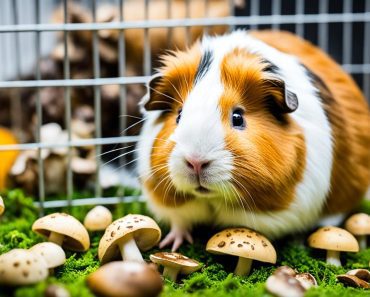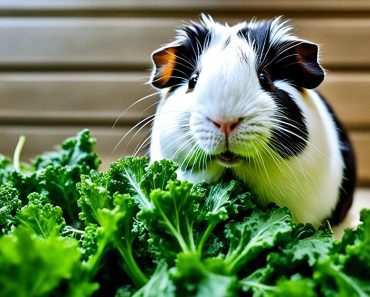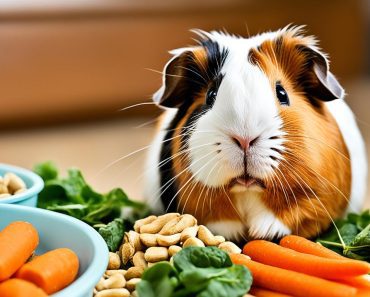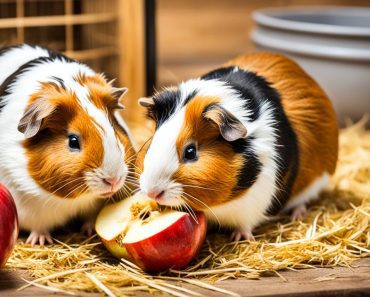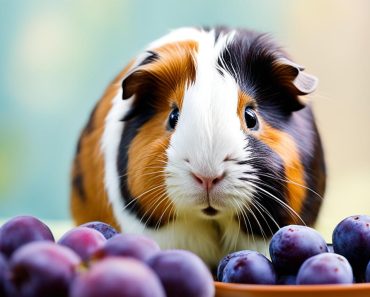As a guinea pig owner, I always strive to provide my furry friend with a healthy and balanced diet. One question that often crosses my mind is, “Can guinea pigs eat basil?” After doing some research and consulting with experts, I’ve discovered that basil is indeed safe and nutritious for our beloved guinea pigs.
Basil, with its vibrant green leaves and aromatic fragrance, can be a delightful addition to your guinea pig’s diet. It not only adds variety to their meals but also offers several nutritional benefits. Rich in vitamin C and calcium, basil helps support their immune system and contributes to their overall well-being.
Feeding basil to guinea pigs is simple. You can offer them a few leaves along with their regular fresh vegetables a couple of times a week. However, it’s crucial to remember that moderation is key. While basil is safe for guinea pigs, excessive consumption can lead to health issues due to its calcium content. So, it’s best to provide a diverse assortment of fresh foods to ensure a balanced diet.
When introducing basil to your guinea pig, it’s important to start slowly. Begin with a small portion and gradually increase the amount to prevent any digestive upset. Remember, every guinea pig is unique, so observe your pet’s reaction and adjust accordingly.
Can Guinea Pigs Eat Basil? Yes, they can.
- Basil is safe and nutritious for guinea pigs, offering vitamins and minerals essential for their well-being.
- Feed basil in moderation, incorporating it into their diet a couple of times a week.
- Start with small portions of basil and gradually increase to avoid digestive issues.
- Provide a varied and balanced diet with a mix of fresh vegetables, herbs, fruits, hay, and pellets.
- Consult with a veterinarian or knowledgeable breeder for personalized dietary advice for your guinea pig.
How Safe Is Basil for Guinea Pigs?
When it comes to feeding basil to your guinea pig, you can rest assured that it is safe and offers several nutritional benefits. Basil is rich in essential vitamins and minerals that contribute to your guinea pig’s overall health.
Basil is particularly high in vitamin C, which is crucial for your guinea pig’s development and immune system. Vitamin C plays a vital role in preventing illness and aiding in the healing process. It is important to note that guinea pigs should not be fed more than 50 milligrams of vitamin C per day to avoid any potential health issues.
In addition to vitamin C, basil is also a good source of potassium. This mineral is essential for the healthy growth of your guinea pig’s skin, nails, and joints. Potassium helps maintain proper hydration levels and supports overall cardiovascular health.
Furthermore, basil contains antioxidants that are beneficial to your guinea pig’s immune system. These antioxidants help fight off colds and diseases, keeping your furry friend healthy and happy.
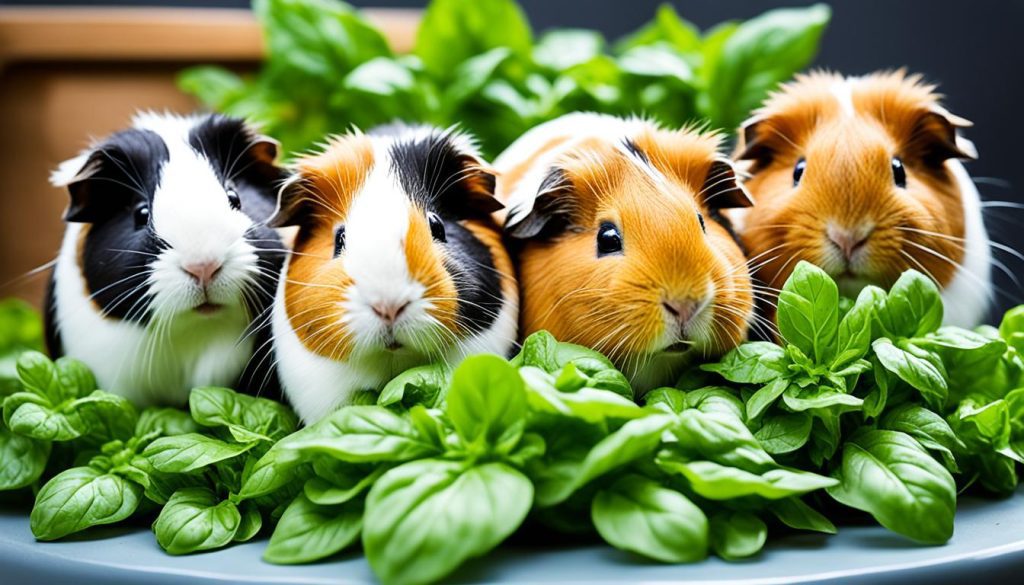
Potential Health Benefits of Basil for Guinea Pigs
Basil offers several potential health benefits to guinea pigs. It can reduce inflammation in their bodies, prevent scurvy (a vitamin C deficiency), boost their immune system, and improve their eyesight. The high fiber and protein content in basil help guinea pigs stay active and maintain a healthy weight. Antioxidants, such as zinc and vitamin A, found in basil, contribute to overall illness prevention and disease resistance. The presence of vitamin C in basil is essential for maintaining your guinea pig’s health and balance throughout their life.
How to Safely Introduce Basil to Your Guinea Pig’s Diet
- Start by offering a small amount of basil, such as a couple of leaves, once a week.
- Observe your guinea pig’s response and ensure they tolerate basil well.
- If there are no adverse reactions, gradually increase the amount of basil over time.
- Remember to always prioritize moderation, as excessive amounts of basil can be harmful to your guinea pig’s health due to its calcium content.
- Offer fresh or raw basil to maximize its nutritional value. Avoid cooking or boiling, as these methods may alter the nutrient composition.
| Nutrient | Amount |
|---|---|
| Fiber | 1.6g |
| Vitamin A | 264 mcg |
| Vitamin C | 18 mg (30% of daily recommended intake) |
| Potassium | 295 mg |
| Calcium | 177 mg |
| Protein | 3.15g |
| Calories | 22 |
| Magnesium | 64 mg |
| Zinc | 0.81 mg |
| Sugar | 0.2g |
As you can see from the table, basil offers a range of nutrients that contribute to your guinea pig’s overall health and well-being.
Nutritional Value of Basil
Basil is not just a flavorful herb; it also offers a range of essential vitamins and minerals that contribute to the overall health and well-being of guinea pigs. This aromatic herb contains important nutrients such as:
- Vitamin A: Aids in maintaining a healthy digestive system and supports cardiovascular health.
- Vitamin K: Promotes proper blood clotting and helps maintain bone health.
- Vitamin D: Essential for the absorption of calcium.
- Vitamin C: Boosts immunity, aids in wound healing, and prevents scurvy.
In addition to vitamins, basil is also rich in:
- Fiber: Supports healthy digestion and prevents gastrointestinal issues.
- Antioxidants: Help protect cells from damage caused by harmful free radicals.
Let’s take a closer look at the nutritional value of basil per 100g:
| Nutrient | Amount | % Daily Recommended Intake |
|---|---|---|
| Fiber | 1.6g | – |
| Vitamin A | 264 mcg | – |
| Vitamin C | 18 mg | 30% |
| Potassium | 295 mg | – |
| Calcium | 177 mg | – |
| Protein | 3.15g | – |
| Calories | 22 | – |
| Magnesium | 64 mg | – |
| Zinc | 0.81 mg | – |
| Sugar | 0.2g | – |
As you can see, basil provides an array of nutrients that can support your guinea pig’s health and vitality.
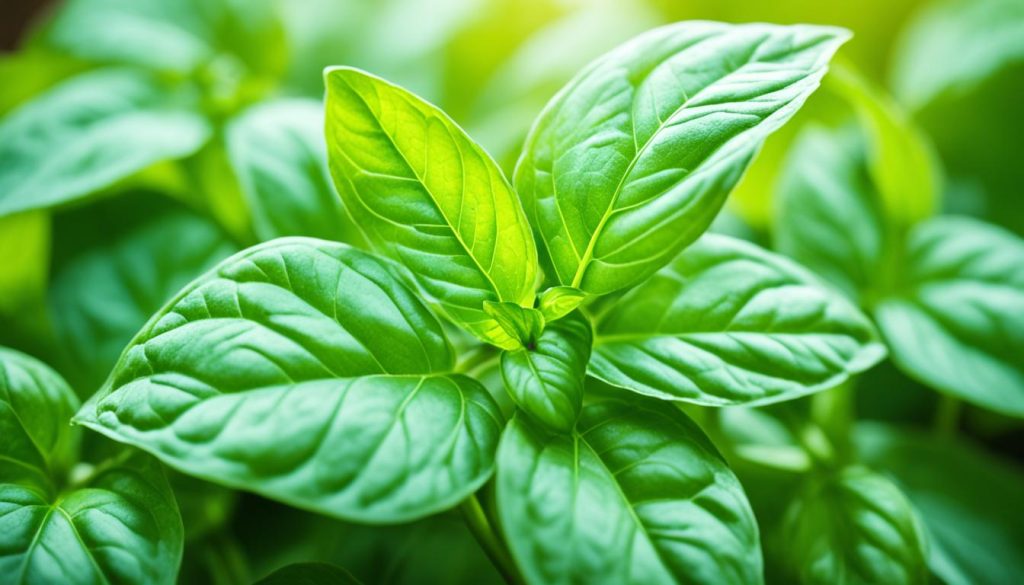
“Including basil in your guinea pig’s diet can provide them with important vitamins and minerals for optimal well-being.”
Benefits of Basil for Your Guinea Pig
Basil offers several health benefits for guinea pigs. It can reduce inflammation, prevent scurvy (a vitamin C deficiency), boost their immune system, and improve their eyesight. The high fiber and protein content in basil help guinea pigs stay active, while antioxidants like zinc and vitamin A help combat illness and prevent disease. Vitamin C in basil contributes to the overall health and balance of guinea pigs throughout their lives.
Guinea pigs can benefit from the anti-inflammatory properties of basil, which can help alleviate discomfort caused by inflammation in their bodies. This is particularly important for guinea pigs prone to joint issues and arthritis.
Basil is also a rich source of vitamin C, which is essential for guinea pigs as they are unable to produce this vitamin on their own. Vitamin C plays a crucial role in preventing scurvy, a condition that can lead to weakness, bleeding gums, and even death in guinea pigs. By including basil in their diet, guinea pigs can maintain healthy levels of vitamin C and avoid these health complications.
In addition, the immune-boosting properties of basil can help guinea pigs stay healthy and ward off infections and diseases. The antioxidants present in basil, such as zinc and vitamin A, play a key role in supporting the immune system of guinea pigs and improving their overall well-being.
Eyesight is another important aspect of guinea pig health, and basil can help in this area as well. The vitamin A content in basil promotes good eyesight and may help prevent vision problems in guinea pigs.
Overall, incorporating basil into your guinea pig’s diet can provide them with numerous health benefits. From reducing inflammation and preventing scurvy to boosting immunity and improving eyesight, basil is a valuable addition to their daily nutrition.
What Other Herbs Are Safe for Guinea Pigs?
In addition to basil, there are several other herbs that are safe and beneficial for guinea pigs. These herbs can be incorporated into their diet to provide variety and additional health benefits. Some of the safe herbs for guinea pigs include:
- Arugula
- Dandelion
- Clover
- Mint
- Parsley
- Cilantro
- Dill
- Fennel
- Oregano
- Thyme
These herbs can be fed to guinea pigs in small quantities alongside their regular diet of fruits and vegetables. They provide a range of essential nutrients and help maintain a balanced diet for your furry friends. However, it’s important to introduce new herbs slowly and in small doses to allow the guinea pig’s digestive system to adjust. This will help prevent any potential digestive issues and ensure their well-being.
Lorem ipsum dolor sit amet, consectetur adipiscing elit. Aenean pretium, dui ut euismod auctor, risus augue molestie tellus, id molestie ipsum velit vel purus. Ut nec commodo justo.
| Herb | Health Benefits |
|---|---|
| Arugula | Boosts immune system, aids digestion |
| Dandelion | Supports liver function, aids digestion |
| Clover | Rich in vitamins and minerals, promotes healthy skin |
Conclusion
Incorporating herbs into a guinea pig’s diet, such as basil, can provide added nutritional benefits and variety. However, it’s important to feed herbs in moderation and introduce them gradually to avoid any potential health issues. Basil, arugula, dandelion, mint, and parsley are safe herbs that can be included in a guinea pig’s diet.
To maintain a balanced diet for guinea pigs, it’s crucial to provide a combination of fresh vegetables, herbs, fruits, hay, and pellets. Consulting with a veterinarian or knowledgeable breeder can help ensure that your guinea pig’s specific dietary needs are met.
Remember, guinea pigs have delicate digestive systems, so it’s important to observe any changes in their behavior or health when introducing new foods. By following guinea pig herb feeding tips and providing a varied and balanced diet, you can help promote the overall health and well-being of your furry friend.


